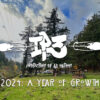Today, January 17th, 2022, Indigenous People’s Power Project honors champion for peace and nonviolence, Dr. Martin Luther King Jr. Martin Luther King Jr. (born Michael King Jr.; January 15, 1929 – April 4, 1968) was an American Baptist minister and activist who became the most visible spokesman and leader in the American civil rights movement from 1955 until his assassination in 1968. King advanced civil rights through nonviolence and civil disobedience, inspired by his Christian beliefs and the nonviolent activism of Mahatma Gandhi. He was the son of early civil rights activist and minister Martin Luther King Sr.
Many know Dr. King as a civil rights actist, and today his words of peaceful protest continue to be widely shared. However, much of his legacy plus largely peaceful rhetoric have been weaponized to promote toxic positivity, and wrongfully critique the Black Lives Matter movement. At the height of his activism, Dr. King was dislked by over half of Americans. A 1966 poll found that 63% of Americans had a negative opinion of Dr. King and his methods of protest; it was only until after his death that the general opinion of him swayed. The future is often a better indicator than the present of what is deemed morally right or wrong in the long run.
Much of his legacy and words have been taken out of context to uphold oppressive systems, market products, and police “unacceptable forms of protest.” Along with promoting peaceful protest, Dr. King also pointed out that, “Large segments of white society are more concerned about tranquility and the status quo than about justice, equality, and humanity.” “If peace means a willingness to be exploited economically, dominated politically, humiliated and segregated, I don’t want peace.” “We must see now that the evils of racism, economic exploitation and militarism are all tied together… you can’t really get rid of one without getting rid of the others… the whole structure of American life must be changed.”
The truth of Dr. King’s work and legacy is not about passivity. The use of peaceful protest exemplified that even when Black people are nonviolent in protest, they are still met with extreme violence for existing and asserting themselves politically peace protest doesn’t discourage assertions against oppressive systems. Only when images capturing the violent mobs and state sanctioned violence targeting peaceful protests, did the general Public notice and act against the oppression of Civil Rights activists demonstrated against. The same is happening today. When videos of unlawful arrests and injustices targeting Black people were circulated online, global citizens were compelled to act in solidarity with the Black Lives Matter movement.
We also want to remember that Dr. King did not work alone. His wife Coretta Scott King influenced his work and led many protests/campaigns calling for economic and social equity and global peace. Dorothy Cotton, Ella Baker, Jo Ann Robinson and countless other female civil rights leaders spearheaded the fight for systemic change, though many haven’t received any recognition. May we remember their memory, legacy, power today and everyday. Today we celebrate Dr. King by honoring his legacy holistically, holding accountable those who have watered down his radical message by dismantling systems of oppression in ways that we can.
Martin Luther King Jr.’s Six Principles of Nonviolence:
Principle 1: Nonviolence is a way of life for courageous people. It is active nonviolent resistance to evil. It is aggressive spiritually, mentally and emotionally.
Principle 2: Nonviolence seeks to win friendship and understanding. The result of nonviolence is redemption and reconciliation. The purpose of nonviolence is the creation of the Beloved Community
Principle 3: Nonviolence seeks to defeat injustice, not people. Nonviolence recognises that evildoers are also victims and are not evil people. The nonviolent resister seeks to defeat evil, not people.
Principle 4: Nonviolence holds that suffering can educate and transform. Nonviolence accepts suffering without retaliation. Unearned suffering is redemptive and has tremendous educational and transforming possibilities.
Principle 5: Nonviolence chooses love instead of hate. Nonviolence resists violence of the spirit as well as the body. Nonviolent love is spontaneous, unmotivated, unselfish and creative.
Principle 6: Nonviolence believes that the universe is on the side of justice. The nonviolent resister has deep faith that justice will eventually win. Nonviolence believes that God is a God of justice.
The IP3 Action Team
SOURCES:
The War Over King’s Legacy by Vern E. Smith and Jon Meacham / Washington Post
Co-opting The Narratives of Social Movements by Jess Dillard-Wright, Vanessa Shields-Haas, Jane Hopkins Walsh / Radical Nurses
How America Erased The Radicalism of Martin Luther King Jr. by Colin Grant / Prospect Magazine
The Language of the Unheard by Jeffrey C. Billman
Americans Divided on Whether King’s Dream Has Been Realized by Jeffrey M. Jones / Gallup News
Martin Luther King Jr. Day; Don’t Forget These Women Who Helped Propel The Civil Rights Movement
by Katie Kindelan / ABC News
IE Research Credit: D’nae (@dnaethehistorian), Lexi (@lexiiimh), Leah (@greengirlleah)









